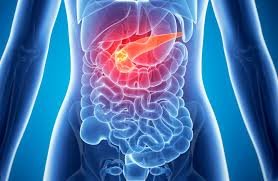Arcus Biosciences Presents Promising Initial Data from Phase 1 Portion of ARC-8 Study for AB680 in Metastatic Pancreatic Cancer

HAYWARD, Calif.: Arcus Biosciences, Inc., an oncology-focused biopharmaceutical company working to create best-in-class cancer therapies,has presented preliminary data from the dose-escalation portion of its ARC-8 Phase 1/1b study, evaluating the safety and tolerability of AB680, the first small-molecule CD73 inhibitor to enter the clinic, in metastatic pancreatic cancer at the ASCO 2021 Virtual Gastrointestinal Cancers Symposium (ASCO GI).
The ongoing, open-label, multicenter trial is a Phase 1/1b study evaluating the safety profile and clinical activity of AB680 in combination with nab-paclitaxel plus gemcitabine (NP/Gem) and zimberelimab, an anti-PD-1 antibody, as a first-line treatment in patients with metastatic pancreatic ductal adenocarcinoma (PDAC).
- Preliminary Safety Results (as of the safety DCO of Nov. 11th 2020)
- 19 patients had received AB680 plus NP/Gem plus zimberelimab at doses of AB680 ranging from 25 to 100 mg, administered once every two weeks.
- Across all four dose-escalation cohorts, no significant additive toxicity from AB680 plus NP/Gem plus zimberelimab has been observed beyond that expected from NP/Gem plus anti-PD-1 combined.
- One dose-limiting toxicity (Grade 2 autoimmune hepatitis) occurred in the 50mg AB680 cohort; the event resolved completely with steroid treatment, and the patient resumed study treatment, including immunotherapy, without subsequent autoimmune events.
- The most common treatment emergent adverse events (AE) were fatigue (68%), anemia (53%), alopecia (42%), diarrhea (42%) and neutrophil count decrease (42%). These AE results are very similar to what would be expected with NP/Gem alone.
- Since the safety DCO, no additional dose-limiting toxicities have been reported.
- Preliminary Efficacy Results (as of the efficacy DCO of Dec. 9th 2020)
- 17 out of 19 patients enrolled in the Phase 1 dose-escalation portion of the study were evaluable for response, and 16 of the evaluable patients remained on active treatment at the time of the efficacy DCO.
- 88% (15/17) of patients experienced at least some shrinkage of their lesions.
- 41% ORR (7/17) was observed for the AB680 combination across all dose-escalation cohorts, including one patient who converted to a complete response for both target and non-target lesions since the efficacy DCO.
- Of the partial responses (PRs), 3 are confirmed responses and of the 4 unconfirmed responders, 3 responded at the first tumor assessment and the fourth responded at the second tumor assessment, and all remain on study.
- For patients that had been on drug for more than 16 weeks, an 85% disease control rate (11/13) was achieved with the AB680 combination.
- Treatment benefit appears durable; of the evaluable patients from the first three dose-escalation cohorts, 10 of 12 (83%) continue on treatment with a median time on treatment of 180 days.
- The last drug to be approved in the first-line metastatic pancreatic cancer setting is Abraxane® (nab-paclitaxel). As stated in the FDA approved label for Abraxane® (nab-paclitaxel) for use in combination with gemcitabine in first-line metastatic pancreatic cancer:
- The ORR from the registrational Phase 3 study was 23%.1,2
- A 48% DCR (>16 weeks) was achieved in the registrational Phase 3 study.
“Based on the results to date, 100mg of AB680 every two weeks has been selected as the dose for the Phase 1b expansion portion of the trial. Given the lack of toxicity observed from the addition of AB680 to chemotherapy and anti-PD-1 therapy to date, we are also evaluating a 125mg every two weeks cohort,” said Bill Grossman, MD, PhD, Chief Medical Officer of Arcus. “We believe that AB680 has the potential to represent the first meaningful advancement for the treatment of pancreatic cancer since Abraxane was approved in 2013. Assuming AB680 continues to show encouraging clinical activity in the ongoing expansion portion of the trial, we expect to open a randomized control arm in ARC-8 shortly.”
“I am encouraged by the emerging safety and efficacy data from this AB680-based novel therapeutic regimen in my patients,” said Johanna Bendell, MD, Chief Development Officer and Director, Drug Development Unit Nashville, Sarah Cannon Research Institute at Tennessee Oncology. “The initial response rate is promising, and thus far there has not been significant additive toxicity from AB680 to chemotherapy. There is a need for advances in the treatment of metastatic pancreatic cancer, and this unique molecule has the potential to improve outcomes for patients with this difficult-to-treat disease. I look forward to continuing to work closely with the Arcus team to further evaluate the role of AB680.”
Even with recent advancements in cancer therapies, such as anti-PD-1 antibodies, additional clinical benefit over NP/Gem alone has not been demonstrated in pancreatic cancer. Overall, PDAC has a 5-year survival rate of less than 10%,1,3 and high expression of CD73 has been shown to be associated with poor prognosis.4 One hypothesis is that the presence of high adenosine levels in the tumor impairs the ability of the highly immunogenic standard-of-care chemotherapeutic regimen to generate a full T cell response. Therefore, blockade of adenosine generation by inhibiting CD73 may restore this immune response, which may be further enhanced by the addition of anti-PD-1 therapy.
Arcus expects to report more mature data from the Phase 1/1b portions of ARC-8, including data on progression-free survival, at medical conferences later this year.















































